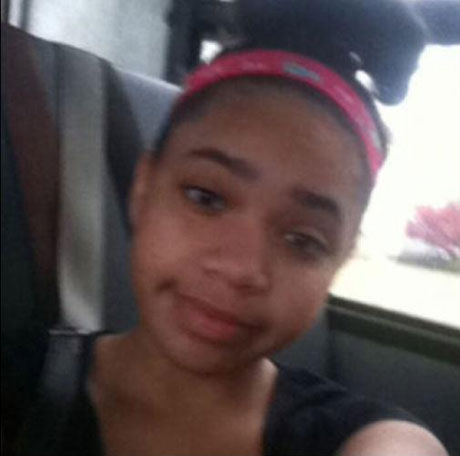
Bresha Meadows is a child who, after years of horrific violence and persistent attempts to escape that violence, defended herself and her family against her father’s abuse. Previously, Bresha had sought help from family members. She’d sought help from the police. She had tried to leave home. Yet the threats and rampant physical violence continued, and finally, she acted in defense of her own survival and the survival of her mother and sisters.
I was fortunate as a child: I didn’t experience abuse in my home. Yet domestic violence is pervasive in our society, and it touches all of us. One of my first memories is of the murder of someone for whom I cared deeply. I attended a home daycare when I was a very young child, and I arrived earlier than the other kids on most days. Early one morning, when I was 3 years old, I witnessed my daycare teacher’s husband murder her. I ran into the bathroom when I heard a scream, and saw her bleeding to death in the bath. I had to then sit and wait with the man who had killed her until my mother came to pick me up. Thirty years later, I still remember the cold, sharp terror that cut through me that day. I wonder how I would’ve responded to the situation, had I been a little older. How do you defend a life — your own, or someone else’s — in the face of life-threatening violence, and particularly in the face of serial abuse? What do you do when you have absolutely no good options? No child should have to face these questions, but Bresha Meadows faced them every day.
One thing I know is that incarcerating Bresha is making a situation that is already very sad much, much worse. The incarceration of children subjects them to physical violence — including simply the violence of being locked in a cell — and often, to sexual violence. (More than 1 in 10 incarcerated youth report that they’ve experienced sexual victimization behind bars.) Like adults, many incarcerated children are subject to strip searches, “lockdowns” that deprive them of phone calls and visits, and sometimes even solitary confinement. Plus, they experience the violence of being torn from their families and isolated from society.
Like Bresha, my sister was incarcerated as a young teen. She was 15 when she was sent to juvenile jail. Being locked in a cage, as a child, was a painful shock for my sister, and it changed the way she felt about herself and her world. She became anxious and depressed. Even beyond the sordid conditions of the jail, the fact of being cut off from her family and loved ones, and told that she was not a child anymore but, instead, a criminal, had a long-lasting impact on her mind. Locking up children does this; it hurts both their present and their future.
Bresha Meadows has already endured so much. I urge all readers to join with me in calling on Bresha’s prosecutors, Dennis Watkins and Stanley Elkins, to drop the charges against her, and let her come home to her family to heal, instead of continuing to be hurt. Jailing this child is no route to justice.
We have 10 days to raise $50,000 — we’re counting on your support!
For those who care about justice, liberation and even the very survival of our species, we must remember our power to take action.
We won’t pretend it’s the only thing you can or should do, but one small step is to pitch in to support Truthout — as one of the last remaining truly independent, nonprofit, reader-funded news platforms, your gift will help keep the facts flowing freely.